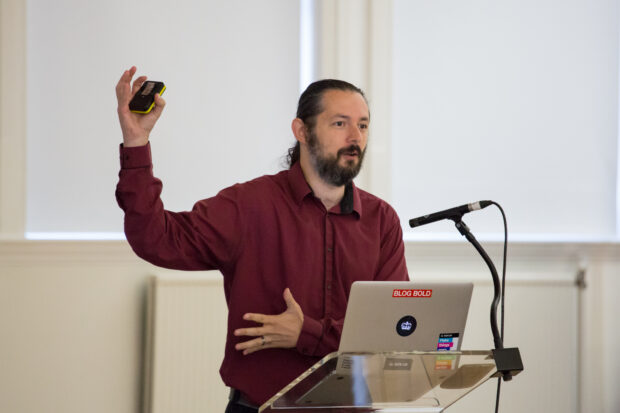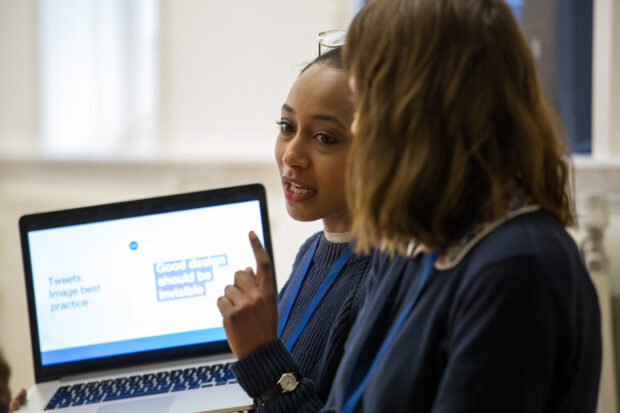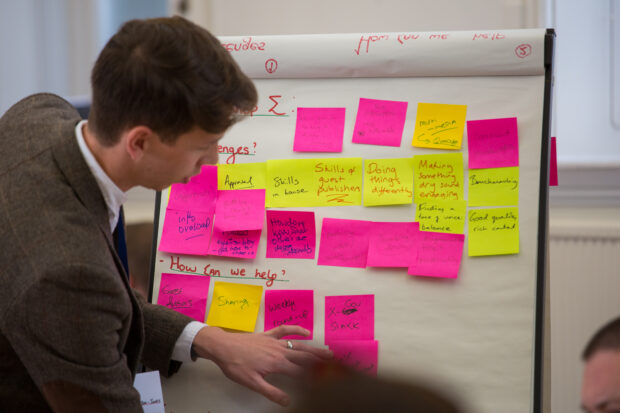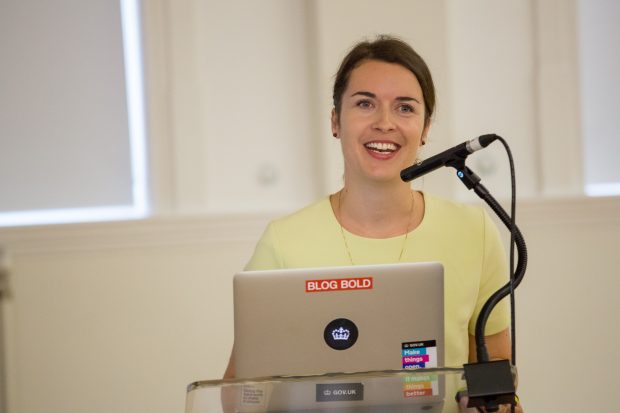When I was preparing my talk for this year’s Blog Camp – a capability building event for blog editors across government – I came across a slide from one of the talks from last year’s event. It said: ‘Reasons why you may not want to blog: because blogging sounds silly and you’re a grown-up’.
And yet, we got together again, a year on, to talk about this silly-sounding discipline. We brought together blog editors from across government to share ideas and best practice, to create connections and partnerships, and to consider how we can blog bigger and better.
We did this because blogging is not silly. We did this because blogging is a valuable tool that government departments can leverage to achieve their objectives.
We’re all old ‘in blog years’
My GDS colleague Terence Eden, who opened this year’s event with a short talk about the value of blogging, told us he’s old ‘in blog years’. And I bet that all of you reading this post are old in that sense too. Because things change very quickly in the blogosphere.

When they first appeared, blogs tended to be ‘digital diaries’ – websites where you’d jot down your thoughts without necessarily thinking about where your scribblings would take you.
Today, they’re powerful tools that can change your users’ behaviours. The GOV.UK blogs I oversee from GDS are often gateways that drive our users to the services we build and want citizens to know about. They help us recruit talent into the Civil Service. They help us convince stakeholders that they should work with us. They help us to be transparent and accountable for the work we do.
A blog is not just another place where you recycle your press releases. Far from it – it’s a place where you inform and engage your audience, where you start a conversation and where you encourage specific actions you want your audience to take.
Blogging has undergone – and is still undergoing – an evolution. And to keep up with it, and make the most of what it has to offer, we need to work together as a community. Hence knowledge sharing and capability building events like Blog Camp.
Blog readers are users too
As blog editors, if we want to make the most of the potential that blogging has to offer, we need to recognise that blog readers are users too. So we need to follow the same principles we follow when we build user-friendly services.
One of those principles is: ‘Start with user needs.’ With every blog post we publish, we need to ask ourselves what the user need is.
That’s why as part of my talk at Blog Camp, I challenged my audience to take a look at the last page of their Google Analytics report. That’s where they would find the sad figures showing how few people read the least popular post on their blog.
It’s not an exercise in resilience but a way to learn about what your users don’t need. And it can sometimes tell you more than the thousands of clicks recorded on the most popular posts on your blog.
The bigger picture
At this year’s Blog Camp, we held a number of interactive workshops and show-and-tells.
We discussed the role of social media in engaging our audiences, making data-driven decisions about our content, building blogging into your organisation’s wider communication strategy, and much more.

And we did all this because blogging in government is not an isolated thing or something we do for fun. It’s an important piece of the communication puzzle that – if used right – will help us achieve our wider objectives.
We’re still learning
Another one of our design principles is: ‘Iterate. Then iterate again.’
Looking at our blogs’ Google Analytics reports is part of this process, and so is listening to what our users tell us.
We’re still learning as a community and as we learn, we get better at knowing what our audiences need, what works and what doesn’t, what helps us tell the story of transformation and what’s holding us back.
That’s why hearing what other blog editors across government have learned about their audiences is so valuable.
Blog Camp is just the beginning
We’re not just iterating our blogs. We’ll also continue to iterate how we share knowledge and build skills in the GOV.UK blogging community.
At this year’s Blog Camp, we held discovery workshops to get the attendees’ ideas for how we can develop and share knowledge more easily in our community.

The workshops were a success, with a number of ideas for how we can get better at blogging, how we can raise standards across the GOV.UK blogging platform, and how we can meet our users’ needs more effectively. I’m confident we’re going to learn a lot from that.
We’re now collating the Blog Camp attendees’ feedback and ideas, and thinking about what’s next. I’m sure I’ll be blogging about the outcomes of this soon.
I’m also hoping that Blog Camp and similar events can equip us with examples and case studies that will contribute to blogging being seen as a valuable tool and something that can continue to transform government communications.
If you manage a GOV.UK blog, you can join the Basecamp group where we share best practice and ideas. Send us an email to request access.
Share your ideas for what makes a successful blog in the comments below. You can also follow Agnieszka on Twitter.









